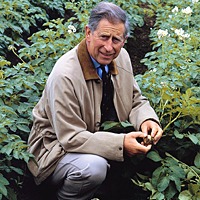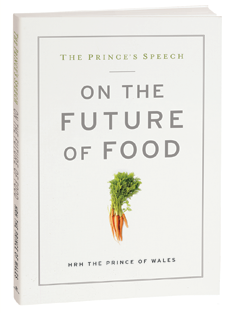 Last May, Prince Charles gave an inspiring keynote speech at the Future of Food conference at Georgetown University in Washington, D.C. Now, Rodale has published the speech in the form of an adorable little book titled On the Future of Food, with a foreword by Wendell Berry and an afterword by Will Allen and Eric Schlosser.
Last May, Prince Charles gave an inspiring keynote speech at the Future of Food conference at Georgetown University in Washington, D.C. Now, Rodale has published the speech in the form of an adorable little book titled On the Future of Food, with a foreword by Wendell Berry and an afterword by Will Allen and Eric Schlosser.
To mark the release of the book, Grist heard from three people whose work echoes Prince Charles’ message: film producer and author Laurie David, sustainable agriculture thought leader Fred Kirschenmann, and nutrition professor and author Marion Nestle.
Want to experience the speech yourself? Watch it online here.
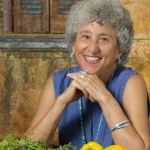
Q. What surprised you most about Prince Charles’ book? What do you most hope the reader comes away with?
Marion Nestle: I attended the meeting at which Prince Charles spoke and was impressed at the time by his broad overview and understanding of the problems inherent in industrial food and the implications of those problems. He described himself as a farmer, which was not exactly how I had imagined him. It’s impressive that someone of his stature cares about these issues and is willing to go on record promoting a healthier food system.

Laurie David: I was surprised at how truthful his words were. There’s really no politics in the speech he’s given. He didn’t stay away from tough issues because they may be challenging. My hope is first that people will read the book and then pass it along to someone else to read. I see the book as a mini-crash course in the issues surrounding our food and it’s my greatest hope that we can all get up to speed on the problems so that we can start dealing with the solutions.
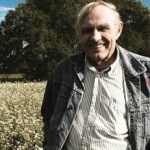 Fred Kirschenmann: This is one of the most concise, coherent, and yet comprehensive statements I have seen, which addresses the condition of our current food system and what we need to do to secure our food future. Having read some of the prince’s work before, not much surprised me. He is an eloquent spokesperson. I hope that readers will come away with a sense of urgency to become active food citizens instead of passive eaters, and get engaged in their own communities to create the kind of food system the prince envisions in their own foodsheds.
Fred Kirschenmann: This is one of the most concise, coherent, and yet comprehensive statements I have seen, which addresses the condition of our current food system and what we need to do to secure our food future. Having read some of the prince’s work before, not much surprised me. He is an eloquent spokesperson. I hope that readers will come away with a sense of urgency to become active food citizens instead of passive eaters, and get engaged in their own communities to create the kind of food system the prince envisions in their own foodsheds.
Q. The food movement always seems to be fighting off charges of elitism. What’s the ultimate value of hearing such an urgent message about the need to change our food system from someone who grew up in a working castle?
LD: We need every messenger we can get on these issues. Prince Charles doesn’t have to put himself on the line this way, but he chooses to because he so clearly sees the light. I’m very grateful to him for that.
The issues of food affect everyone regardless of your economic level. Eric Schlosser said it perfectly in his afterword that “the wealthy will always eat well. It is the poor and working people in the United States who need a new sustainable food system more than anyone else.” We have to do a better job of providing healthy food to everyone. It should be a basic right.
FK: It is difficult to predict how the majority of Americans will respond to the prince’s appeal. I assume some will still be dismissive of his analysis and ignore his appeal, either because they still regard him as “elite” and “wealthy” and therefore able to do things that ordinary folks can’t do, or because they have succumbed to the advertising campaigns which keep trying to tell us that we have the best food system in the world.
MN: Americans in general love royalty. Whether food movement participants care about royalty is a different matter. I can’t imagine anyone in America having more weight than Michael Pollan and Alice Waters but it’s great to have Michelle Obama and now the prince on our side.
I don’t know anyone in the food movement who isn’t actively concerned and working hard to make healthy food available to everyone, rich and poor alike. I see the food movement as an important player in efforts to reduce income inequities.
Q. Prince Charles says “farmers are better off using intensive methods and consumers who would prefer to buy sustainably produced food are unable to do so because of the price. There are many producers and consumers who want to do the right thing but, as things stand, ‘doing the right thing’ is penalized.” What would it take to reverse this predicament?
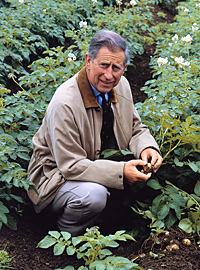 LD: Public policy is the one of the main things that has to change. Why are we subsidizing big agribusiness and doing nothing to support the small farmer? A more enlightened farm bill would be a good start.
LD: Public policy is the one of the main things that has to change. Why are we subsidizing big agribusiness and doing nothing to support the small farmer? A more enlightened farm bill would be a good start.
FK: There is growing evidence almost daily that food which is high in calories and costs less per ounce, costs much more in health care. Industrial food is only “cheap” because we have externalized so many of the costs. So rather than caving in to the “penalties” associated with our current “cheap” food system, as the prince seems to do, we should support ventures like that of Will Allen’s Growing Power farm, and make good, nutritious, affordable food available in every resource-poor community. And if subsidies are necessary to accomplish that, we should support those subsidies, rather than the subsidies which currently support our industrial food system in order to drive down the prices of junk food.
MN: Our agricultural support system rewards big, intensive commodities like corn and soybeans. It barely acknowledges small, sustainable, “specialty” crops (translation: fruits and vegetables). Policy is a matter of political will and can be changed.
Q. In the book, Prince Charles suggest that it is time to “re-assess what has become a fundamental aspect of our entire economic model … Because we cannot possibly maintain the approach in the long-term if we continue to consume our planet as rapaciously as we are doing. Capitalism depends upon capital, but our capital ultimately depends upon the health of Nature’s capital. Whether we like it or not, the two are in fact inseparable.” What role do you think can food play in re-assessing this economic model?
LD: I think this question goes to the core of one of the prince’s points, which is that we have to put nature back in the center of our food system. Because we’ve gone so far in the other direction we are setting ourselves up for huge economic failures down the line. I think we have to move away from the arrogant idea that we can do things better than Mother Nature can. It seems pretty obvious that we can’t.
FK: This is clearly the most important part of the prince’s narrative. We need to encourage our economists and food activists to articulate, in simple clarity, the threefold economy that the prince alludes to here. A good companion to the prince’s speech, in this regard, is John Michael Greer’s new book, The Wealth of Nature: Economics as if Survival Mattered. Food can be the lynchpin that drives this economic cultural transformation. As our financial economy continues to be stressed, our natural capital and our human capital will become increasingly important to all of our economic enterprises, and food will become one of the most urgent drivers of the new economy, since we can all live without computers and cars, but not without food!
MN: Food is such a good way to introduce people to every one of these concepts: capitalism, depletion of natural resources, and climate change, for that matter. At NYU, we explain what food studies is about by saying that food is a lens through which to view, analyze, and work to improve the most important problems facing societies today. I can hardly think of a social problem that is not linked to food in some way. That’s what makes it fun to teach. It’s also what makes the food movement so important.

